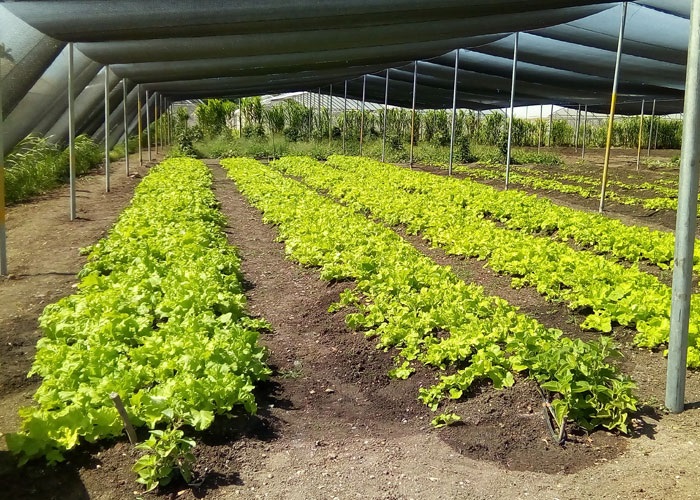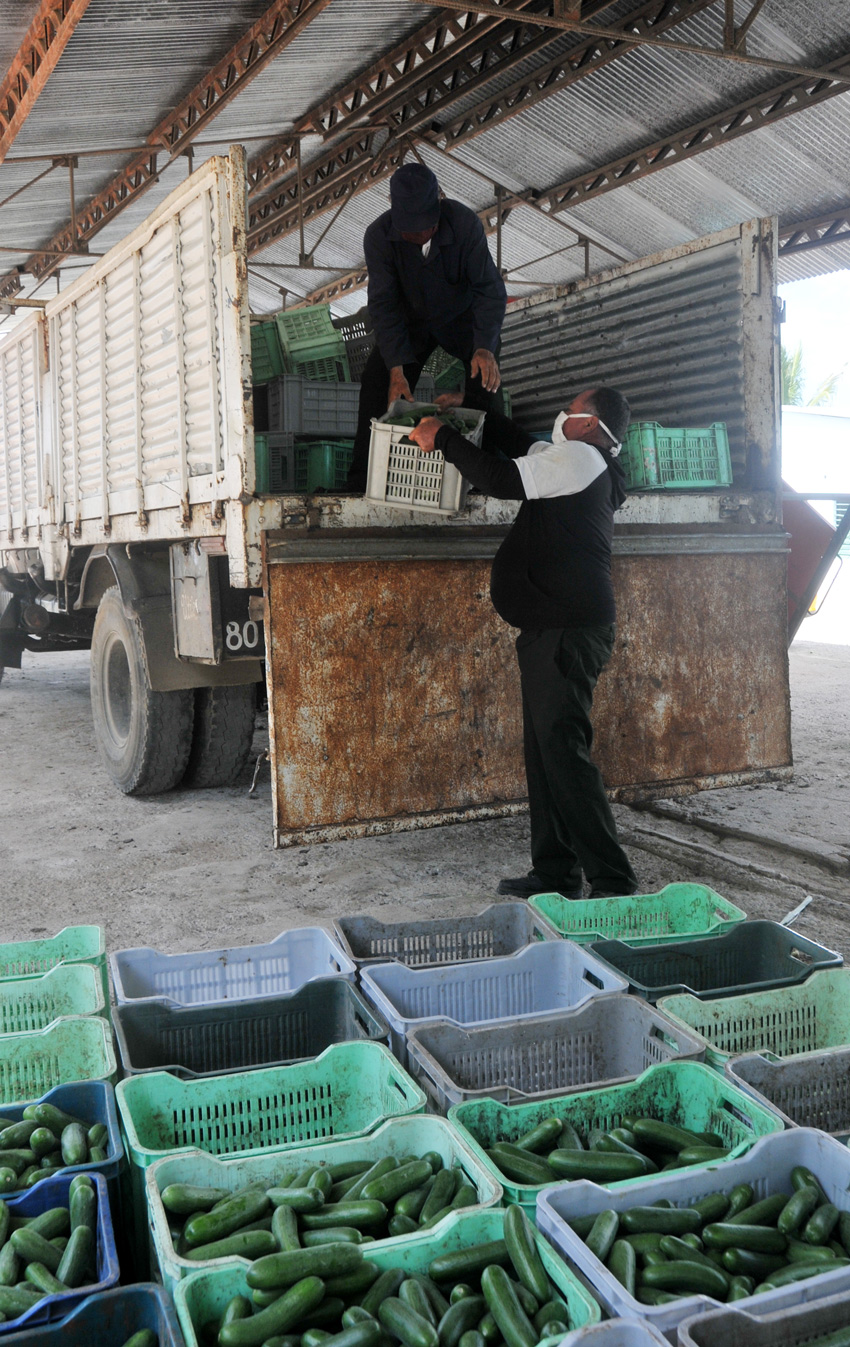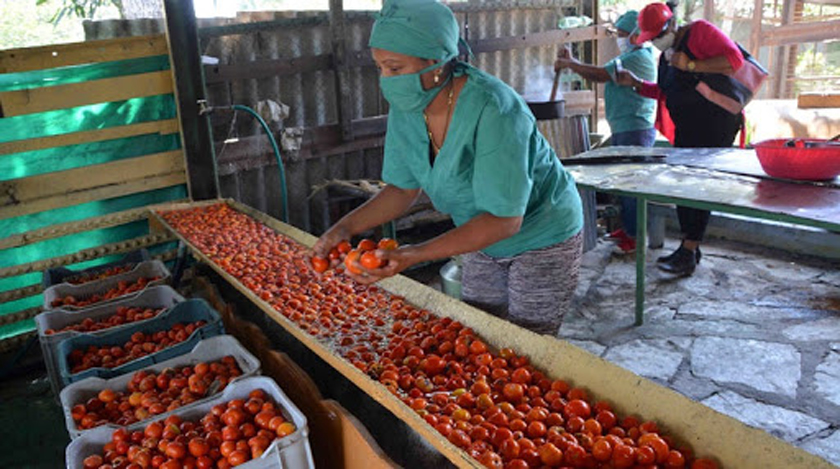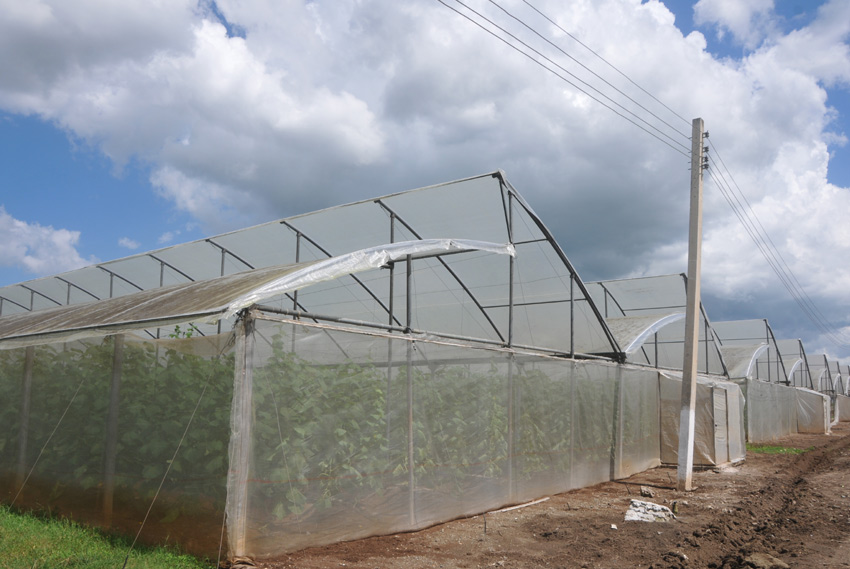
Although at this time of year there is a greater presence of vegetables in the commercialization network of agriculture in the province, the production of this food continues to be a priority and needs a greater effort to meet the demand of the population, as reported by executives of this sector at the national level.
 Las Tunas, Cuba.- In this territory, the 88th tour of directives of this Program concluded the day before, which, focused on increasing the production of vegetables, medicinal plants, and the exploitation of patios and plots; it had a different evaluation methodology due to the preventive measures adopted in the country to face the COVID-19.
Las Tunas, Cuba.- In this territory, the 88th tour of directives of this Program concluded the day before, which, focused on increasing the production of vegetables, medicinal plants, and the exploitation of patios and plots; it had a different evaluation methodology due to the preventive measures adopted in the country to face the COVID-19.
The evaluation covered 148 units distributed by all municipalities, in which the programs aimed at increasing vegetables, agroecological management of pests, soils and organic fertilizers, seed production, medicinal plants, and patios and plots, among others, were analyzed. A grade of Good and 90.6 points obtained in the index of completed tasks were the results.
Elizabeth Peña Turruellas, national director of Urban, Suburban and Family Agriculture (AUSUF), highlighted the importance of the representative of this program in the popular councils. "If the results have increased, it is largely thanks to these actors who, in a direct link with the vegetable producers, are part of the commercialization process and add more neighbors to the food production," she highlighted.
Regarding the Food Sovereignty and Nutrition Education Program, the holder described it as an umbrella for agrifood development, in which it is vital to take advantage of local resources and be independent of imports. In this sense, she was interested in the self-sufficiency of the communities and highlighted the production of biofertilizers and seeds, as alternatives that can be promoted and contribute to the development of production.
At the meeting, it was demonstrated that the AUSUF has the greatest responsibility to guarantee fresh vegetables to the population. Today it is not enough to meet the 10 square meters per inhabitant dedicated to planting and harvesting vegetables and fresh condiments, if there is no efficient production with high yields of these crops and the people do not receive, at least, 300 grams daily.
 As a fundamental aspect, Lisbet Abello, an official who attends the National Program of Medicinal Plants in the Ministry of Agriculture, directed those present the need to achieve greater results in obtaining these species to supply Public Health and reduce the effects caused by the drug deficit nationwide. "If we want to take these medicinal plants to an industrial scale, we must increase their quantity and quality," she urged.
As a fundamental aspect, Lisbet Abello, an official who attends the National Program of Medicinal Plants in the Ministry of Agriculture, directed those present the need to achieve greater results in obtaining these species to supply Public Health and reduce the effects caused by the drug deficit nationwide. "If we want to take these medicinal plants to an industrial scale, we must increase their quantity and quality," she urged.
Manuel Pérez Gallego, first secretary of the Party in Las Tunas, affirmed that the Balcón de Oriente is in a position to improve the indicators of this program, with special emphasis on obtaining the five kilograms of animal protein per capita that must be acquired per month, and said that "the greatest satisfaction will be when Las Tunas see more presence of food at the points of sale."






